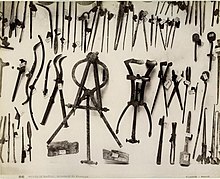Roman Culture/Medicine
In the early Roman empire, many doctors were freed Greek slaves. Some of the ancient texts that we have recovered have scorned ancient “doctors” at all levels of society. Doctors did not need any formal training and often times consisted of shadowing another doctor as an apprentice. Unethical practices were fairly common, thus doctors were accused of being quacks, charlatans, and charging exorbitant prices. However, not all people in the medical profession were running immoral practices. Hippocrates came into prominence as a doctor and came from the Greek island of Cos. Today, he is often termed the father of Western medicine, and one of his texts now termed the Hippocratic Oath is still used to define good medical practice and morals. Another prominent doctor is Galen, who was born in AD129 and greatly contributed to the understanding of many scientific disciplines. He used dissections of monkeys and pigs to generate incredibly detailed anatomical drawings. Under Emperor Augustus he was able to write detailed medical texts as well as develop surgical instruments. Both doctors relied on the now discredited theory of humorism. Humorism is the theory that the body is made up of four parts, blood, black bile, phlegm, and yellow bile. The excess or deficiency of one of the parts would affect the health of a person. The theory is often considered to have origins from ancient Egypt, but was not developed into a system until the Greeks.

The militaristic nature of the Roman empire aided in the development of medical advances. Doctors began to be recruited by Emperor Augustus and even formed the first Roman Medical Corps for use in the aftermath of battles. Surgeons had knowledge of various sedatives including morphine from extracts of poppy seeds and scopolamine from herbane seeds. They became proficient at amputation to save patients from gangrene as well as tourniquets and arterial clamps to stem blood flow. Over multiple centuries, the Roman empire led to great gains in the field of medicine and formed much of the knowledge we know today.
References
edit"Life, death, and entertainment in the Roman Empire". David Stone Potter, D. J. Mattingly (1999). “Greek Medicine.” http://www.nlm.nih.gov/hmd/greek/greek_oath.html “Medicine & Surgery in Ancient Rome.” http://www.crystalinks.com/romemedicine.html